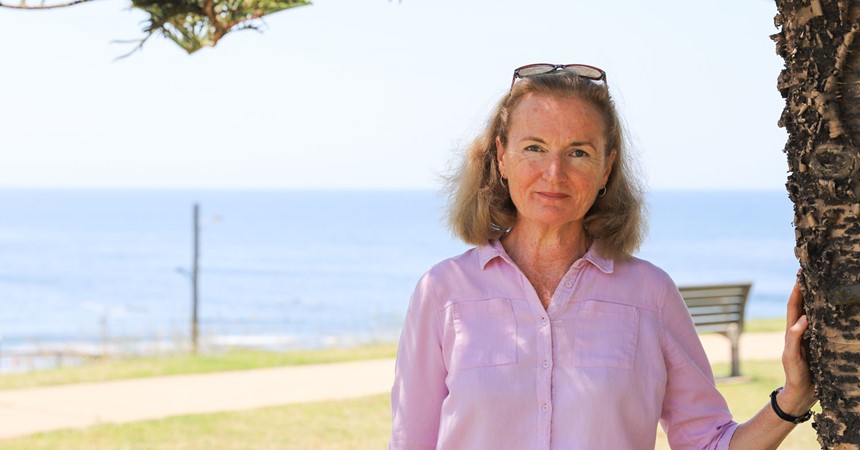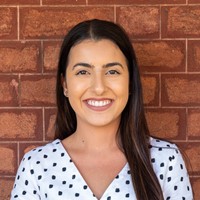As a Master in Applied Linguistics (TESOL), and with a PhD in Education and an Advanced Diploma in Spanish, Dr Coleman has worked as a teacher, academic and consultant in English as an additional language in Australia, Africa, Latin America and Melanesia.
Dr Coleman has a strong drive to not only support teachers of bilingual and multilingual students but in addressing the issue of multilingual approaches to literacy at the national, systemic level.
- What Catholic school/s did you attend? Do you know why your parents choose catholic education for you?
I did my last two years of primary school at St Columban’s Mayfield after my family moved to Newcastle. Then I went to San Clemente for Year 7-10 and following that to St Anne’s, Adamstown. My parents were Catholics and our parish church was Corpus Christi in Waratah.
- What are your fondest memories from your schooling years?
Fetes, mission days and similar activities which built community are happy memories. I was lucky to make a friend on my first day at St Columban’s who is a still close friend. I have good memories of some excellent teachers too, particularly English teachers, who guided me to understand the power of language. School days weren’t bad, but they weren’t the best days of my life, so I sympathise with kids who impatiently, and sometimes moodily, wait for school to end and for life to start.
- You have travelled far and wide as an educationist. What’s been the motivation behind your international experience?
Good literacy in a society’s dominant language includes the capacity to critique existing practices and imagine new ones. The article in July’s Aurora on revolutionary approaches to literacy in indigenous communities rightly identified literacy as the key to having life options and to full participation in social, political and economic life, particularly for linguistic minorities. My motivation for my work as a teacher, academic and education consultant is the desire to support such groups to achieve good literacy in their societies’ dominant languages and in their own. In recent years, as a consultant to Solomon Islands’ Ministry of Education I’ve been proud to be part of an international team addressing this issue at the national, systemic level.
- Have the cultural differences influenced your delivery or the reception of your teaching?
I’m very fortunate to have a husband and kids who have accompanied and/or supported me over the years to work in varied cultural contexts in Latin America, Africa, Asia, Melanesia and Australia. The most important things to do in any new culture are to shut up, listen and watch, to try to get an understanding for how things are done and what things are valued there. Only then can you ask questions and think about what you might have to offer, and how you can work in culturally respectful and productive partnerships with local colleagues. The way I’ve worked (and learned) in every culture has been different.
- What is the best or most interesting experience from your travels or career?
There are many, all involving interactions with inspiring educators. For example, I cherish the experiences I had with the dedicated and joyful educators I trained and supervised in pre-schools for AIDS-affected kids in marginalised communities in Zimbabwe. I often went home during those years with an aching jaw from laughing all day without being able to remember what exactly we’d been laughing about. Last month in Zimbabwe I was inspired anew by a colleague I met, an educator and former MP, who has established a school for disadvantaged kids in the centre of the capital, Harare. We talked for a long time about his strategy of employing highly skilled, justice-oriented teachers in small classes, rather than having well-appointed classrooms and resources. The friendly, confident, bi-lingual kids I met were testament to his strategy and to the immense power of literacy.
- What are the greatest hurdles to improving literacy?
The first is the belief that literacy is value-free and something that we ‘give’ kids, rather than something we build with them based on what they bring to the education process. The second is the disconnection between what evidence-based research tells us works for kids with different literacy learning needs, and the market-oriented way that education has been conceptualised, delivered and funded by governments and the education industry.
- What are some of the best innovations you have witnessed in education programs? Why do you believe they were so successful?
In a school I worked with over three years in a remote island in Vanuatu, a context-specific model of mother-tongue education was implemented. Teachers taught content first in Bislama, the common language, then students discussed it in their tribal language groups. Teachers then checked students’ understanding in Bislama before teaching the same content in English. Over this time there was a discernible improvement in kids’ outcomes in external English exams. This approach works because it values and uses the kids’ languages and cultural knowledge to build understanding of meaning before teaching in a less familiar language, making it much easier for them to develop literacy in English.
- Is faith a big part of your life? If yes, how has it helped?
Faith is something I struggle with. It isn’t important to me in terms of personal piety, rather in how it impels and connects me to social action, such as my work and my membership of the support community of the House of Hospitality ministry of the Sisters of St Joseph.























































































